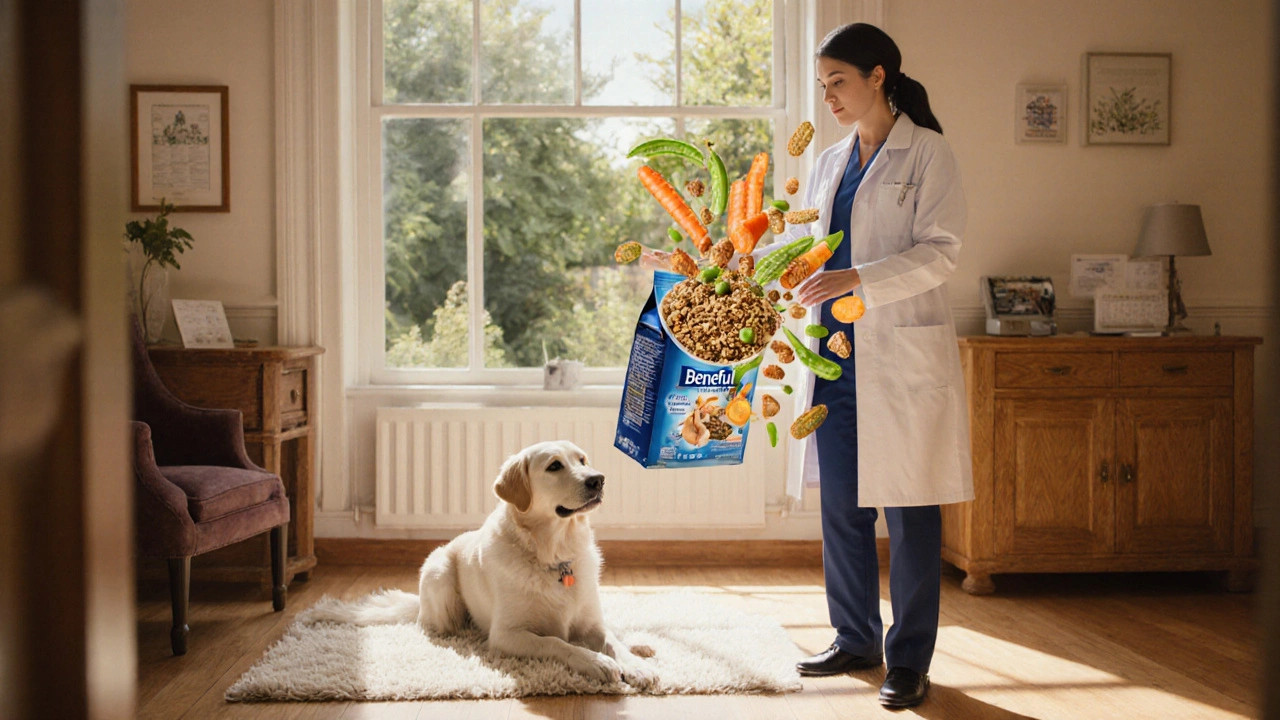Beneful Vet Opinion: What the Experts Say About This Dog Food
If you’ve ever stood in the pet aisle staring at a bag of Beneful, you’ve probably wondered whether vets actually trust it. The short answer is: opinions vary. Some vets appreciate the brand’s affordability and wide selection, while others flag specific ingredients that could cause problems for certain dogs.
First, let’s clear up a common myth – just because a product is cheap doesn’t mean it’s low‑quality. Beneful uses a mix of animal proteins, grains, and added vitamins. The quality of those proteins and the presence of fillers are what vets focus on. Understanding their criteria helps you decide if Beneful fits your pup’s needs.
What Vets Look For in a Dog Food
Veterinarians start with three basics: protein source, digestibility, and nutrient balance. They want a clear protein label (like chicken, beef, or fish) rather than vague “meat meals.” They also check for excessive corn, wheat, or soy, which can be harder to digest and may trigger allergies in sensitive dogs. Finally, they compare the guaranteed analysis to the dog’s life stage – puppies need more calories and calcium than seniors.
When a vet evaluates Beneful, they’ll scan the ingredient list. You’ll see terms like “chicken meal” and “corn gluten.” Those are concentrated protein and carbohydrate sources. Some vets are okay with them, especially for active dogs, while others prefer whole meat and less grain.
Beneful: The Good, The Bad, and The Verdict
The Good: Beneful offers a range of formulas – from dry kibble for puppies to senior blends with joint support. The brand includes added vitamins D, E, and B‑complex, which can help with skin, coat, and energy. Prices are competitive, making it a realistic option for larger families.
The Bad: Several Beneful recipes rely heavily on corn and wheat. Those grains can be allergens for some dogs and may cause digestive upset. Also, the protein source is often “meat meal,” which some vets argue is less natural than fresh meat.
The Verdict: If your dog is healthy, doesn’t have food sensitivities, and you’re looking for a budget‑friendly kibble, many vets see no harm in feeding Beneful. However, if your pup has a history of allergies, skin issues, or gastrointestinal problems, a vet may recommend a grain‑free or limited‑ingredient diet instead.
One practical tip: always transition gradually. Mix a small amount of Beneful with your dog’s current food, increase the Beneful portion over a week, and watch for any signs of itching, gas, or loose stool. If anything looks off, stop the switch and talk to your vet.
Another tip is to match the formula to your dog’s life stage. Beneful Puppy has higher calories and DHA for brain development, while Beneful Senior includes glucosamine for joint health. Feeding the wrong stage can lead to weight gain or nutrient gaps.
Bottom line: Beneful isn’t a miracle cure, but it can be a solid, affordable everyday food when chosen wisely. Use your vet’s guidance, consider your dog’s specific needs, and keep an eye on how your pet reacts. That way you’ll know whether Beneful lives up to the vet opinion you trust.
What Vets Really Say About Beneful Dog Food
A veterinarian‑focused look at Beneful dog food: ingredient breakdown, AAFCO compliance, health impacts, life‑stage suitability, and practical feeding checklist.
